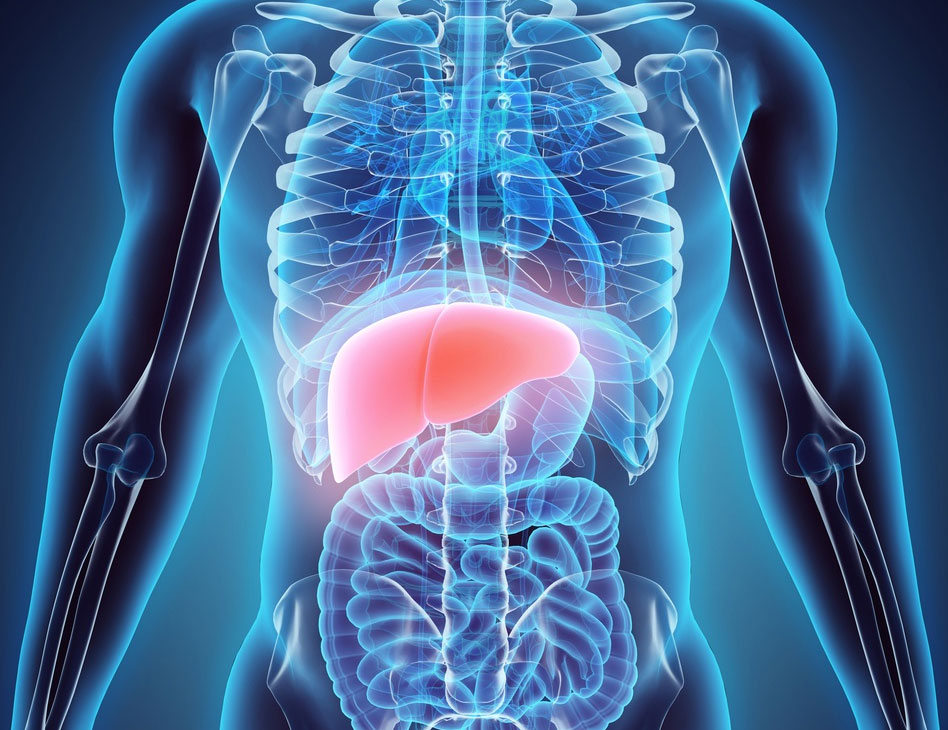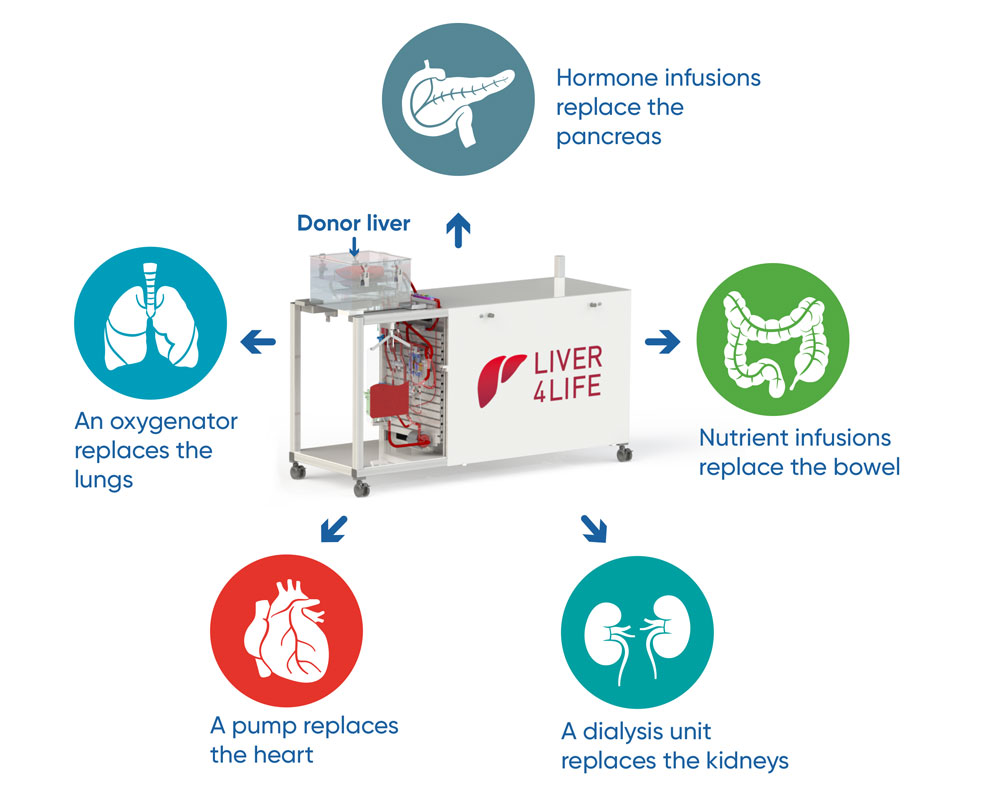
14th January 2020 Liver storage time increased from 12 hours to a week Researchers have developed a machine that repairs injured human livers and keeps them alive outside the body for a week. This breakthrough may increase the number of available organs for transplantation, saving the lives of many patients with severe liver diseases or cancer.
Until now, livers could be stored safely outside the body for only a few hours. With a new perfusion technology, livers – and even injured livers – can now be kept alive outside of the body for an entire week. This represents a major breakthrough in transplantation medicine, which may increase the number of available organs for transplantation and save many patients suffering from severe liver disease or a variety of cancers. Injured livers from cadavers, initially not suitable for use in transplantation, may regain full function when perfused in the new machine for several days. The basis for this technology is a complex joining together of artificial circulatory, hormonal, respiratory and other systems. As illustrated below, this can mimic most of the body's core functions close to physiology. The corresponding study was published yesterday in the journal Nature Biotechnology.
"The success of this unique perfusion system – developed over a four-year period by a group of surgeons, biologists and engineers – paves the way for many new applications in transplantation and cancer medicine helping patients with no liver grafts available," explains Prof. Pierre-Alain Clavien, Chairman of the Department of Surgery and Transplantation at the University Hospital Zurich (USZ). When the Liver4Life project started in 2015, livers could only be kept on the machine for 12 hours. The seven-day successful perfusion of poor-quality livers now allows for a wide range of strategies – such as repair of pre-existing injury, cleaning of fat deposits in the liver, or even regeneration of partial livers. After initial tests on pigs, the researchers progressed to human livers. Their study shows that six of ten perfused poor-quality human livers, declined for transplantation by all centres in Europe, recovered to full function within one week of perfusion on the machine. The next step will be to actually use these organs for transplantation. The proposed technology offers many applications, offering a new life for many patients with end-stage liver disease or cancer.
Comments »
If you enjoyed this article, please consider sharing it:
|








